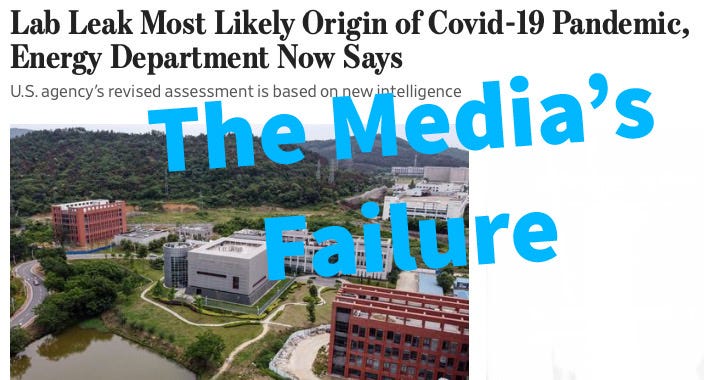How the Media Failed on the origins of COVID
Now maybe there will be an uncensored debate about what really happened
The U.S. Energy Department has concluded that the Covid pandemic was most likely from a laboratory leak. It provided its new assessment in a classified intelligence report to the White House and leaders in Congress. It was a change from its own conclusion a year earlier that thought it most probably was the natural evolution of a virus.
My book about the drug industry, Pharma, was published in March 2020, as the world began locking down. In dozens of interviews that followed, whenever I was asked about the origins of Covid, I said I did not know. I could make a persuasive case either that it was from a natural transmission from an infected animal or from an unintended leak from the Wuhan Institute of Virology.
No matter how much I was pressed for which one I thought was more likely, I never gave an opinion. That was because I had not done the reporting necessary to reach a conclusion. At one point in the late summer of 2020, I talked to my publisher about whether he might be interest…




